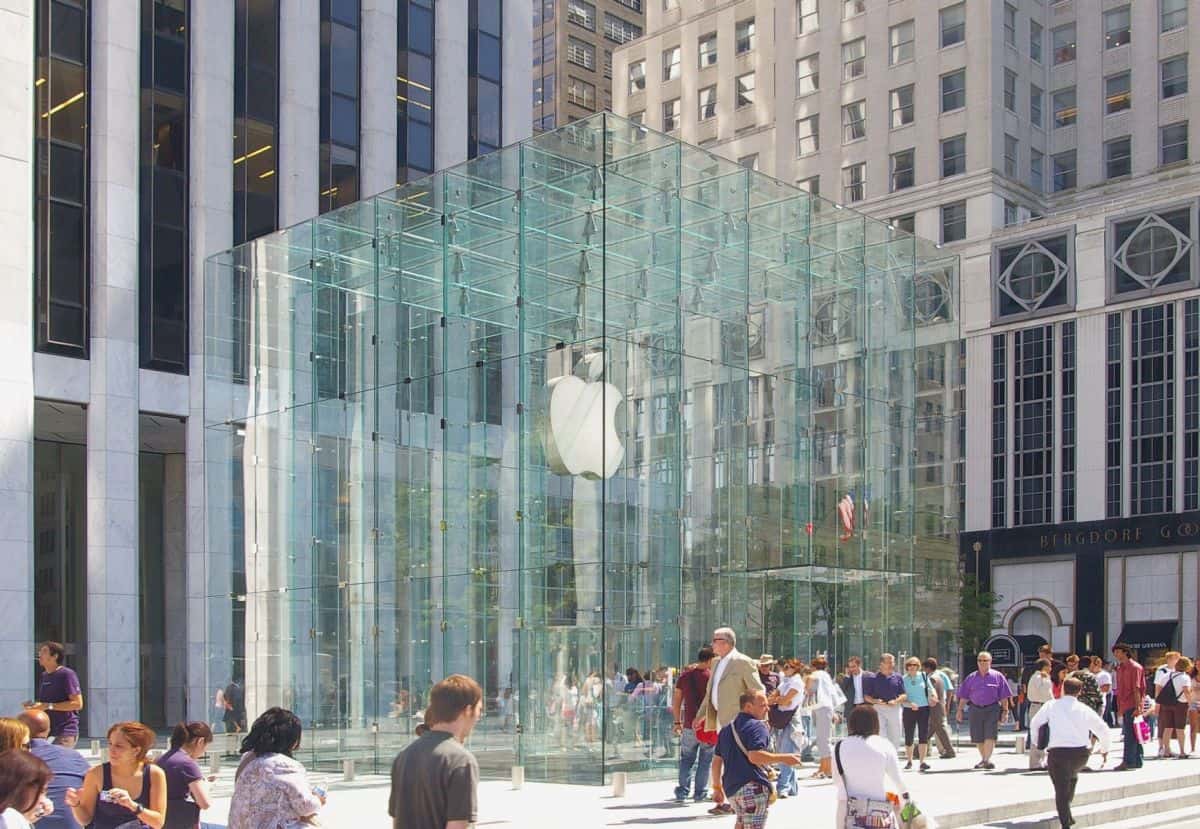
Swap Agrawal is a student at Harvard Law School.
In this weekend’s news and commentary, NLRB GC Abruzzo spoke about algorithmic management at the Anti-Monopoly Summit, House members asked the NLRB to investigate unfair labor practices by Apple, and the NLRB reversed a Trump-era rule making it easier to discipline workers for profane comments.
On May 5, NLRB General Counsel Jennifer Abruzzo spoke about AI and algorithmic management at the Anti-Monopoly Summit organized by the American Economic Liberties Project. The summit convened union leaders, government officials, activists, and policy experts to discuss “a future where markets are fair and competitive.” GC Abruzzo spoke about the challenges monopolies create for workers. In particular, she called AI a “black box” and put both companies and providers on notice that the NLRB GC would “broadly construe” and “fully enforce” labor laws protecting the rights of workers to organize in the face of increasing surveillance. While she acknowledged that some algorithmic management could improve productivity and efficiency, she said the burden was on employers to prove to regulators that AI was being used for legitimate business interests rather than “abusive” practices. “Workers need to be told what is being used and what data is collected,” Abruzzo said. The GC had previously raised many of these issues in an October 2022 memo on unlawful electronic surveillance and automated management practices. She also pointed to “critical partnerships with the FTC, DOJ Antitrust, and CFPB” as essential to addressing employment structures that restrain competition. Other speakers at the summit included NEC Director Lael Brainard, Secretary of Transportation Pete Buttigieg, FTC Chair Lina Khan, Assistant Attorney General for DOJ Antitrust Jonathan Kanter, and CFPB Director Rohit Chopra.
On May 4, U.S. Representatives Emanuel Cleaver (D-MO) and Sylvia Garcia (D-TX) sent a letter to General Counsel Abruzzo asking the NLRB to investigate allegations of unfair labor practices at Apple retail stores in Kansas City and Houston after reports that retail workers were fired and faced intimidation on the job for exercising their right to collectively organize. Jacqueline’s previous coverage of the retaliation at the Kansas City store is available here. “Any allegation that the largest corporation in the world is using its institutional power to silence and stamp out workers’ God-given right to collectively bargain for fairer wages, better benefits, and increased workplace safety is extremely disconcerting—but allegations of retaliation from numerous workers of the same retail store should be investigated with the seriousness this situation deserves,” said Congressman Cleaver. In March, the Communications Works of America union (CWA) filed unfair labor practice charges with the NLRB due to Apple’s retaliatory conduct. The Board has previously held that Apple broke labor law by holding captive audience meetings and making coercive anti-union statements during a union organizing campaign at Apple’s Cumberland Mall store in Atlanta. Earlier this year, the Board again ruled that Apple’s work and confidentiality rules interfered with employees’ Section 7 rights by restraining them from discussing wages and other conditions at work. While the NLRB is not obligated to respond to the letter, it shows that Apple’s conduct is increasingly drawing Congressional attention.
On May 1, the NLRB ruled 3-1 to throw out a Trump-era decision that made it easier for employers to discipline workers who make profane, harassing or discriminatory comments in the course of a workplace dispute. The decision came in a case involving Lion Elastomers LLC, a Texas-based synthetic rubber manufacturer that discharged a worker for getting into a heated exchange with managers about working conditions. The Board overruled General Motors and reverted back to the decades-old “setting-specific standard” from Atlantic Steel for determining when workers’ conduct is still protected by federal law. In reaching this decision, the Board acknowledged “the realities of industrial life and the fact that disputes over wages, hours, and working conditions are among the disputes most likely to engender ill feelings and strong responses.” The Board’s precedent regarded harsh language as “an integral and inseparable part of [picket and strike activity.” The Board sharply rebuked the “unpersuasive” General Motors rule, arguing that “broke sharply with well-settled precedent” by granting “new power to employers to effectively determine, based on their own individual practices and preferences, the scope of protected activity.” Republican NLRB member Marvin Kaplan dissented, writing that “the Board will now protect employees who engage in a full range of indefensible misconduct, such as … shouting racist epithets at other employees or carrying signs sexually harassing a particular employee.”






Daily News & Commentary
Start your day with our roundup of the latest labor developments. See all
April 18
Disneyland performers file petition for unionization and union elections begin at Volkswagen plant in Tennessee.
April 18
In today’s Tech@Work, a regulation-of-algorithms-in-hiring blitz: Mass. AG issues advisory clarifying how state laws apply to AI decisionmaking tools; and British union TUC launches campaign for new law to regulate the use of AI at work.
April 17
Southern governors oppose UAW organizing in their states; Florida bans local heat protections for workers; Google employees occupy company offices to protest contracts with the Israeli government
April 16
EEOC publishes final regulation implementing the Pregnant Workers Fairness Act, Volkswagen workers in Tennessee gear up for a union election, and the First Circuit revives the Whole Foods case over BLM masks.
April 15
The Supreme Court ruled in favor of bakery delivery drivers in an exemption from mandatory arbitration case; A Teamsters Local ends its 18-month strike by accepting settlement payments and agreeing to dissolve
April 14
SAG-AFTRA wins AI protections; DeSantis signs Florida bill preempting local employment regulation; NLRB judge says Whole Foods subpoenas violate federal labor law.